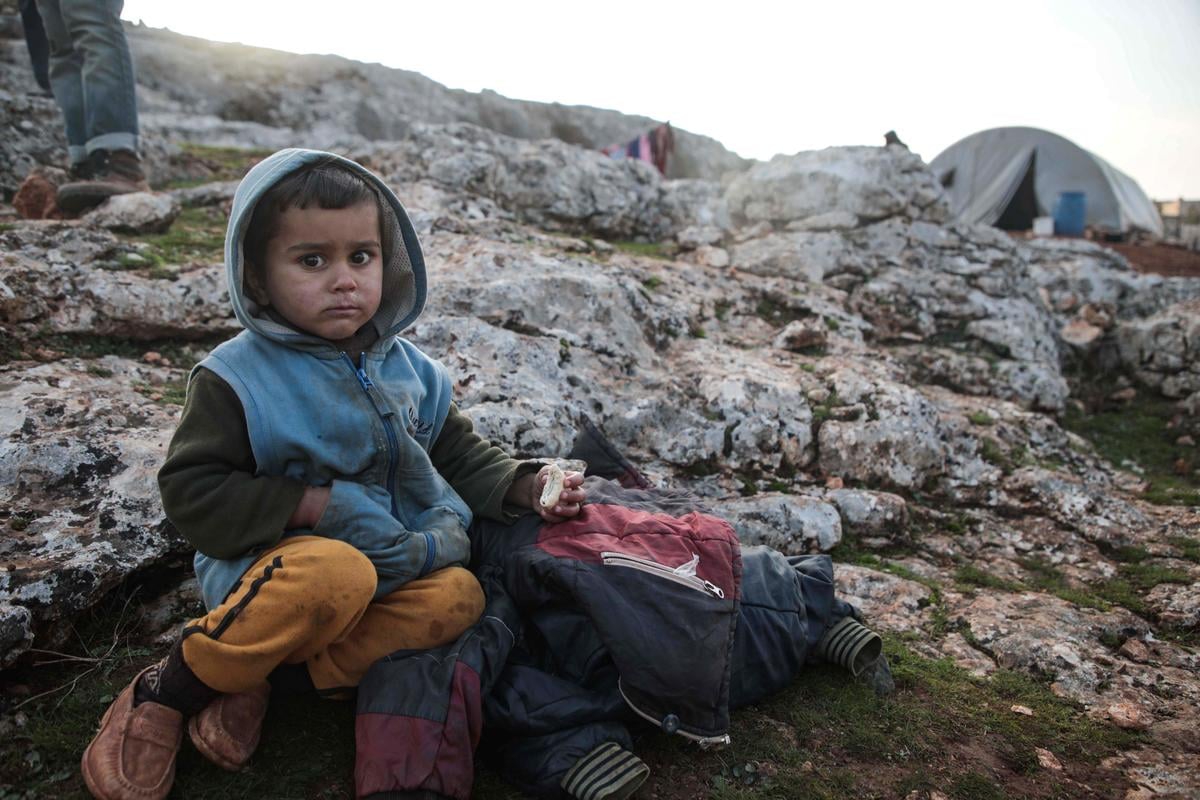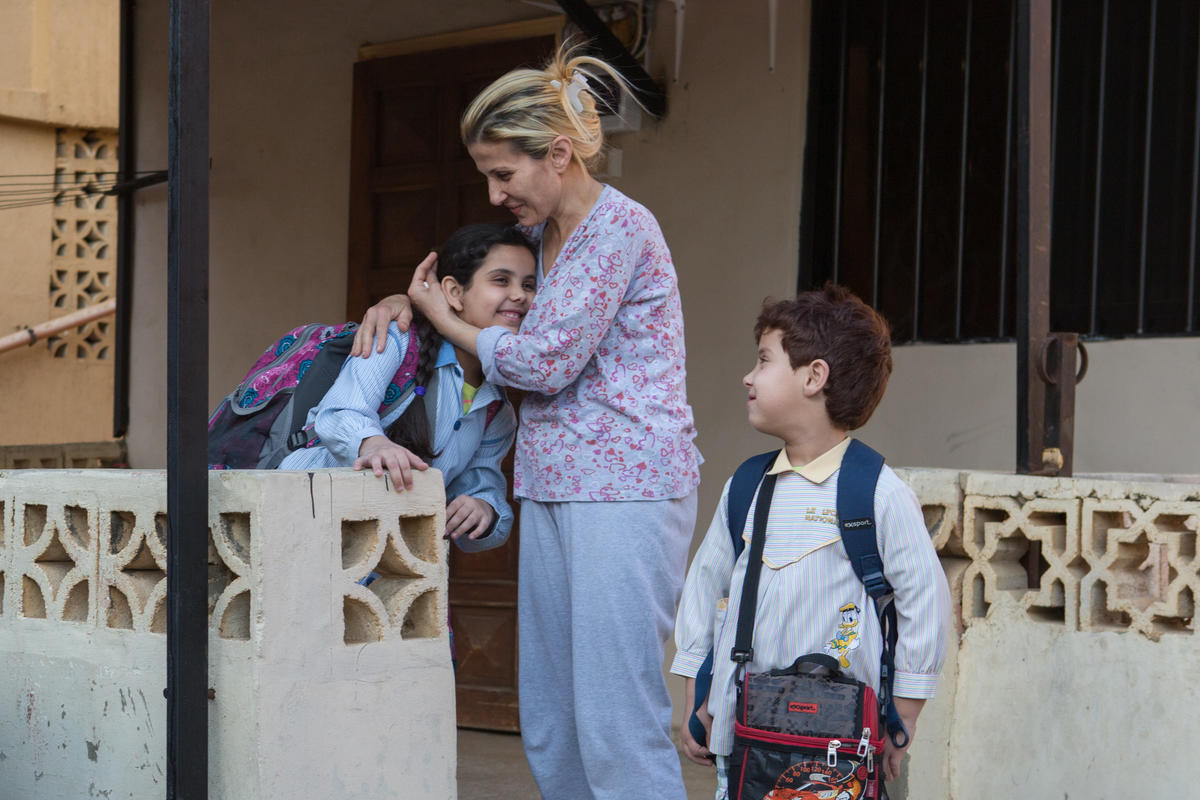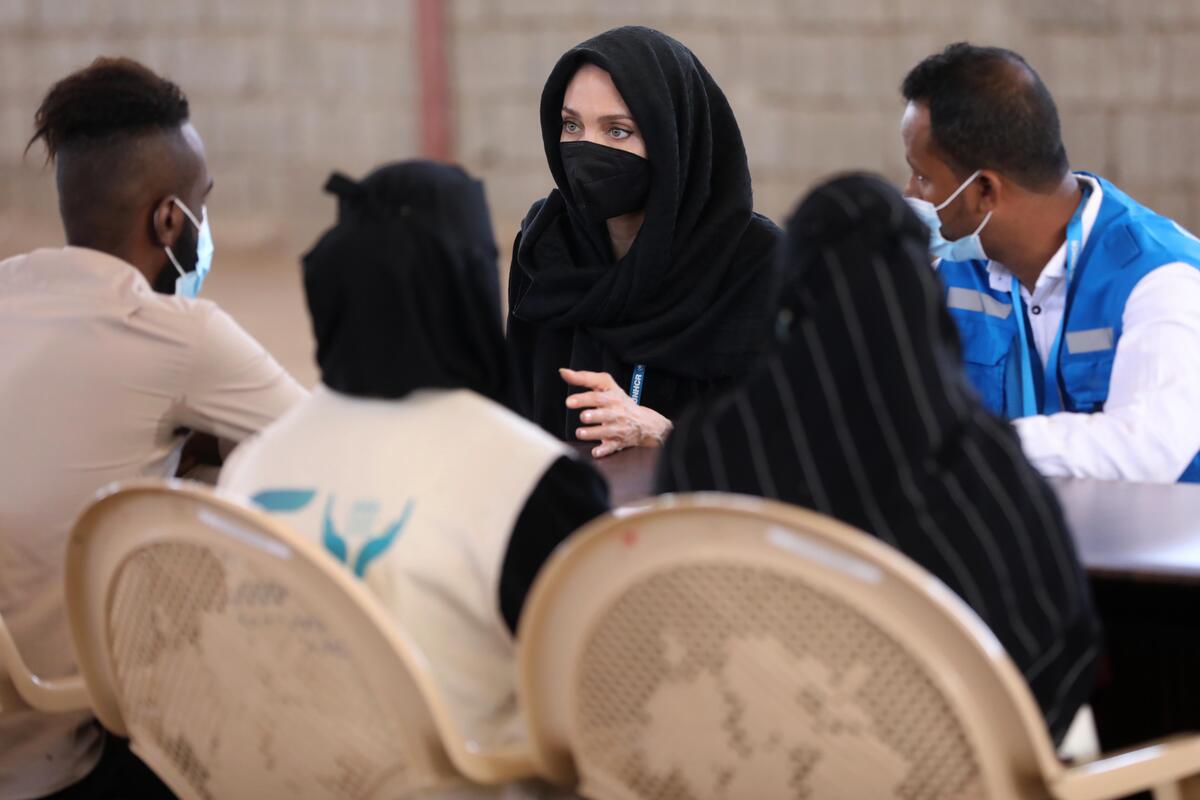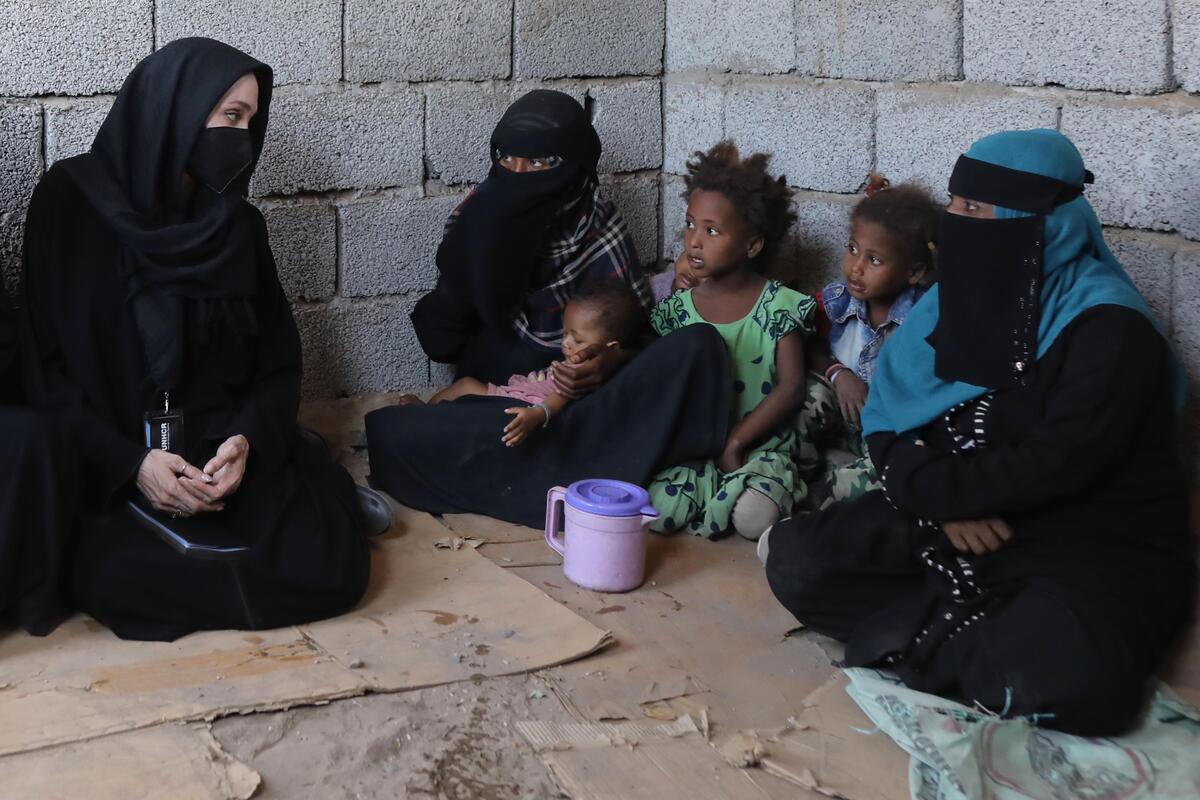More aid for Libya, Côte d'Ivoire exodus, urges Angelina Jolie
More aid for Libya, Côte d'Ivoire exodus, urges Angelina Jolie

RAS ADJIR, Tunisia, April 5 (UNHCR) - One camp, many complexities. That's what the UN refugee agency's Goodwill Ambassador Angelina Jolie encountered on Tuesday when she visited a camp near the Tunisian-Libyan border.
Jolie was on a two-day visit to Tunisia to highlight the plight of nearly 440,000 people who had fled Libya into surrounding countries since early March. More than half of them are in Tunisia, most of them migrants who had been working in Libya, but also some 2,500 people from war-torn countries.
On Tuesday morning, she travelled to the Ras Adjir border point where an average of 2,000 people arrive daily from Libya. She continued on to Choucha transit camp, home to more than 7,000 people who had recently fled the fighting in Libya.
"There were groups of Egyptians, Chadians, Eritreans, Somalis and other nationalities," said the UNHCR Goodwill Ambassador. "It was a well managed camp despite the challenges of addressing different cultural backgrounds and finding different solutions for them. Not everyone can get on a plane and go home, and you have to manage the expectations of those who stay behind."
More than 70,000 migrant workers have already returned home on humanitarian airlifts organised by UNHCR and the International Organization for Migration. But many more remain, and many more are arriving every day. Return is out of the question for some 2,500 people who had fled violence in their own countries.
Jolie met a family from Somalia that had been displaced repeatedly for 18 years. They first fled the conflict at home for the Middle East but were sent back. They then tried leaving by boat but were arrested and detained in Libya for five months, even the five-year-old daughter. They arrived at Choucha camp two weeks ago.
"I hope this is the final place before you find the country where you can finally be at home and stop having to keep moving," she told them.
The Goodwill Ambassador also spoke to an Ivorian woman who was listening to the radio for the latest developments in Côte d'Ivoire. The woman had left her four-year-old daughter in Abidjan to find work in Libya, but had to leave for Tunisia amid the recent unrest. She was anxious because the last time they had spoken on the phone, the little girl had been without food and drink for days.
"Côte d'Ivoire has seen unrest and poverty for years and the situation is complicated," said Jolie. "But if the fighting eases, it would be an important step. The first question would be - how quickly can the first influx of aid come? We have to get relief to them immediately."
Over 136,000 people have fled Côte d'Ivoire for neighbouring countries since the post-election violence started in November. As many as 1 million others are believed to be displaced within the country.
UNHCR's Goodwill Ambassador reiterated her appeal for humanitarian access to people affected by the fighting in Côte d'Ivoire and Libya, and for safe passage for those wishing to leave.
During her Tunisia visit, Jolie also called for more international support for the relief operation at Choucha transit camp, and led the way by donating an ambulance to transport the injured from the border and by sponsoring an evacuation flight for 177 people to return to their countries of origin.








